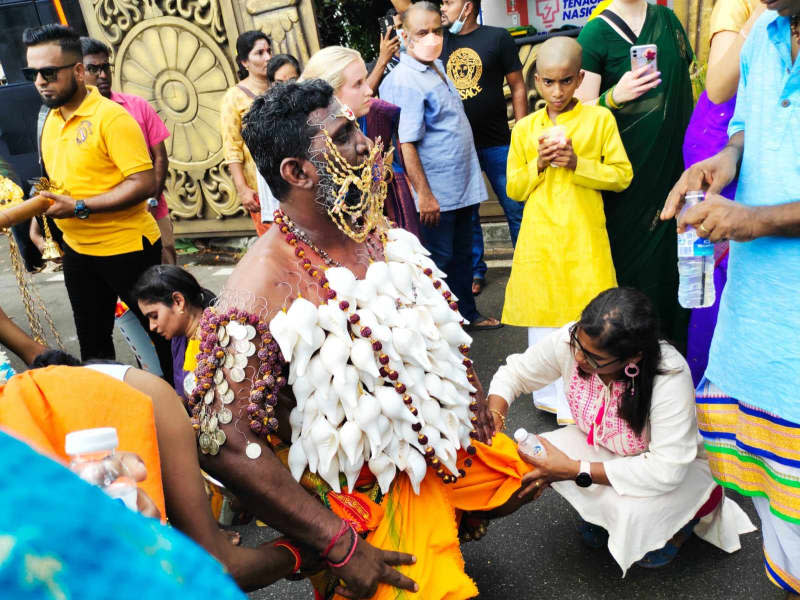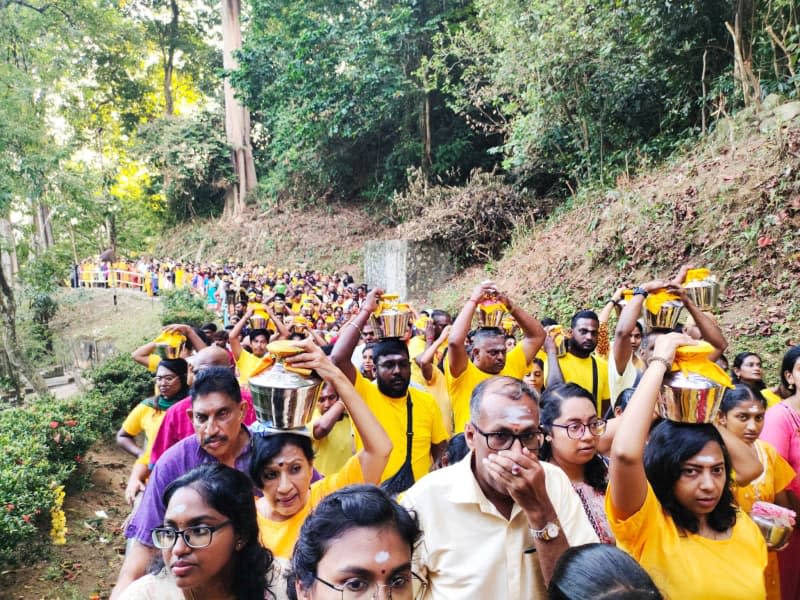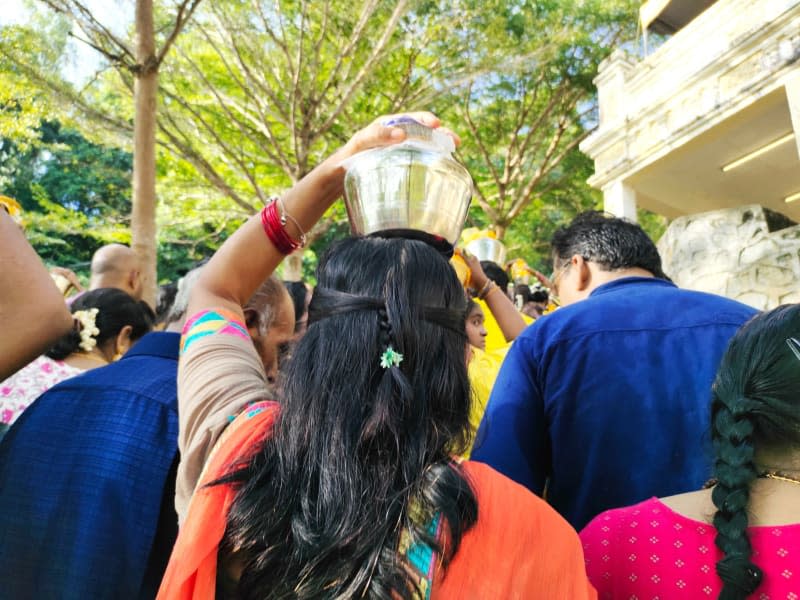Devotion, sacrifice and self mutilation at bright Malaysian festival

Malaysians are marking Thaipusam Festival in a colourful and dramatic celebration that includes ritual, dance and striking acts of devotion.
These take place in a limestone cave landscape that echoes with the sound of prayer and the footsteps of millions of devotees as dawn breaks.
Thaipusam, which is also celebrated in India, Sri Lanka, and Singapore, commemorates Lord Murugan's victory over the demon Soorapadman and serves as a divine reminder of the triumph of good over evil through the holy spear given to him by his mother, Goddess Parvati.
Tamilians were among the first Indians to arrive in Malaya - now Malaysia - in the late 1800s. They brought with them their customs, especially the Thaipusam festival that honours Lord Murugan, a Hindu deity.
The Batu Caves near Kuala Lumpur are the spiritual epicentre of the festival in Malaysia, transcending their geological origins to become Hindu shrines.
The climax of the pilgrimage involves a majestic procession, as devotees ascend 272 steps up to an imposing golden statue of Lord Murugan.
During Thaipusam, devotees fulfil their vows through acts of devotion. One ritual involves carrying Paal Kudam, pots filled with milk, up the steep hills to the Lord Murugan temple. The vessels are offerings to bathe the deity in a cascade of milk, which is believed to purify devotees.
Acts of self-mutilation also testify to worshippers' faith and sacrificial devotion.
Devotees like 34-year-old Harish R. engage in rigorous acts of penance, piercing their flesh with hundreds of small hooks.
In a surreal demonstration of faith, vessels hang from these hooks, symbolizing the burdens devotees willingly carry for the divine.
While these feats may look painful to observers, devotees enter a trance-like state and say they are oblivious to any discomfort in their worship.
"This is a form of strict penance dedicated to Lord Murugan," Harish says. "Most of us feel no pain because we have dedicated our bodies to Lord Murugan, and he takes on the pain. This is what we believe: it's divine possession."
Some devotees choose to elevate their penance to extraordinary levels. Beyond piercing their bodies with hooks, some have other worshippers pull the hooks with multiple strings attached from behind.
Weeks of preparation, including prayer and fasting, put participants into a trance throughout the rites, heightening their spiritual experience.
Most women pursue less extreme penances, by piercing their tongues and cheeks instead.
Amidst the procession, some devotees indulge in euphoric street dancing, entering a state of frenzy as they express their spiritual energy.
Beyond the caves of Kuala Lumpur, on the island of Penang, another congregation of devotees embarks on a pilgrimage to the renowned Waterfall Hilltop Temple.
Visiting from India, Padmesh Tirunelveli Narayanapillai, an assistant professor, says how different the celebration of Thaipusam is in Malaysia, compared to in India.
"While Tamil Nadu typically sees more Kavadis during the festival, those in Malaysia are notably adorned with lavish decorations," he says. "The festival appears to hold greater prominence and popularity in Malaysia than in India, marked by vibrant lights, music, and devotees engaging in joyful dances throughout the procession."
Indra Devi, a professor from Malaysia, says the spectacle is particularly colourful and vibrant in Penang, partly thanks to the many booths sponsored by different organizations.
Along the route to the top of the temple, many give away food and drinks free of charge, to help those ascending the pathway. "Hiking up the 511 steps to the Waterfall Hilltop Temple took all morning due to the massive crowd but it was still bearable compared to the hike up the famous Batu Caves. Though Batu Caves has lesser steps, the steps are steeper, making it more challenging to climb."
The widespread observance of Thaipusam across Malaysia, including its recognition as an official holiday in some regions, underscores the nation's cultural diversity.
As the sun sets on the Thaipusam Festival, the sound of prayers and the scent of incense lingering in its wake, the spiritual journey of sacrifice and devotion lives on among devotees.
Thaipusam is a remarkable testament to people's capacity for profound spiritual experiences. Year after year, devotees celebrating the festival exemplify the principle of mind over matter.



